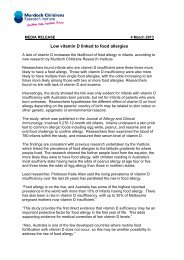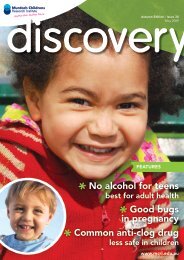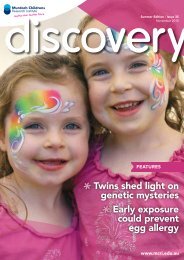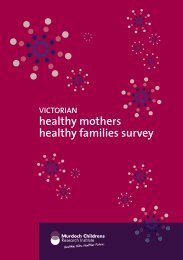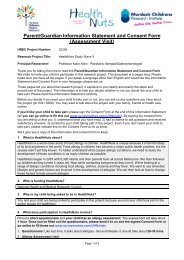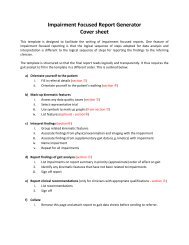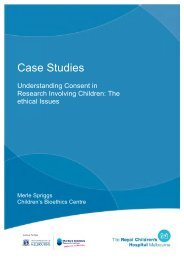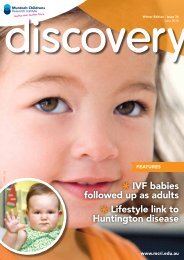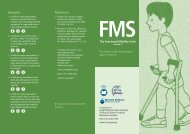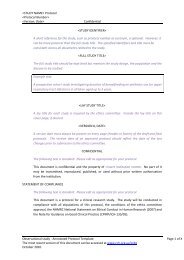Case studies: - Murdoch Childrens Research Institute
Case studies: - Murdoch Childrens Research Institute
Case studies: - Murdoch Childrens Research Institute
You also want an ePaper? Increase the reach of your titles
YUMPU automatically turns print PDFs into web optimized ePapers that Google loves.
CASE 4<br />
[Real life case]<br />
Opt-out consent and the role of parental consent in a<br />
study in a child care centre.<br />
An experiment designed to study the spread of germs in a U.S. child care centre was<br />
closed down after a parent complained that the experiment was done without<br />
consent. <strong>Research</strong>ers sprayed a solution containing DNA fragments of a plant virus<br />
on toys, doorknobs and other surfaces in a number of day-care centres to track the<br />
spread of germs. The purpose was to find more effective ways of controlling germs in<br />
a child-care setting. No health risk to the children was anticipated.<br />
The DNA-based “marker” solution was placed in one toddler classroom in each of 14<br />
day-care centres. “There were 249 children, 1 to 2 years old, in those classrooms.<br />
Hundreds more children were present in other areas of the day-care centres and<br />
potentially were exposed to the marker as it was spread.”<br />
A letter outlining the study was left with each child’s belongings but written consent<br />
was not sought until after the children had been exposed to the solution.<br />
<strong>Research</strong>ers then approached parents asking for permission to swab the children’s<br />
hands to see if the solution was present. According to one proponent of the study:<br />
“parents were given the opportunity to opt out of the experiment, but none did”. 13<br />
Questions:<br />
1. Is leaving a letter with the children’s belongings a good enough way of<br />
contacting parents?<br />
Comments<br />
No. Unless parents receive the letter, “opt-out consent” amounts to no consent.<br />
Information could be mailed out but that can be unreliable also. Personally<br />
handing the information to parents would ensure that they receive it and that they<br />
do have the opportunity to “opt-out”.<br />
13 Bill Sizemore. A study in ethics: A parent’s complaint shut down a germ-tracking medical experiment in local daycare<br />
centres and raised questions about researchers’ responsibility to get informed consent. The Virginian-Pilot, 3<br />
August, 2003.<br />
<strong>Case</strong> Studies 13



